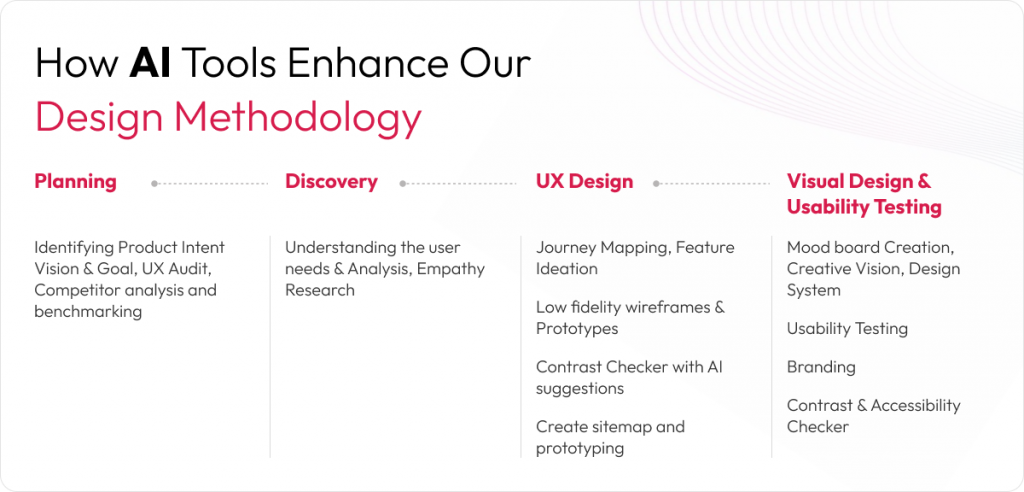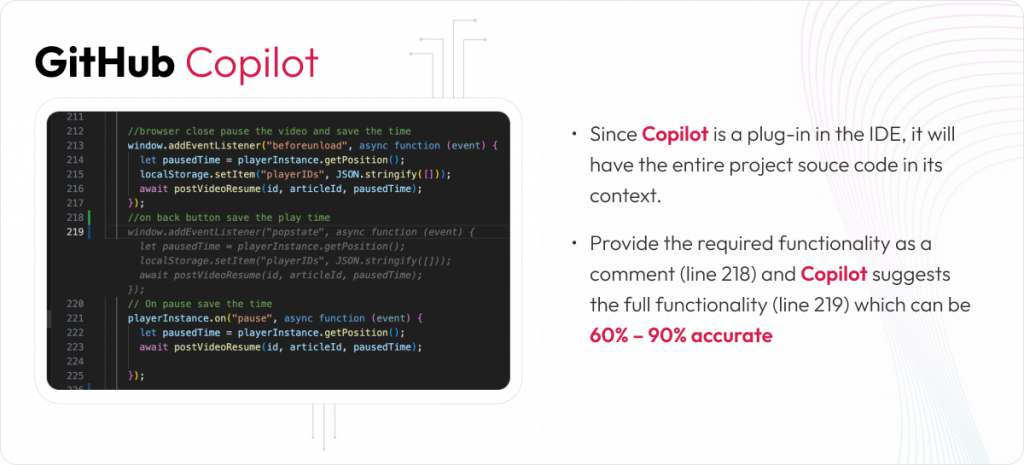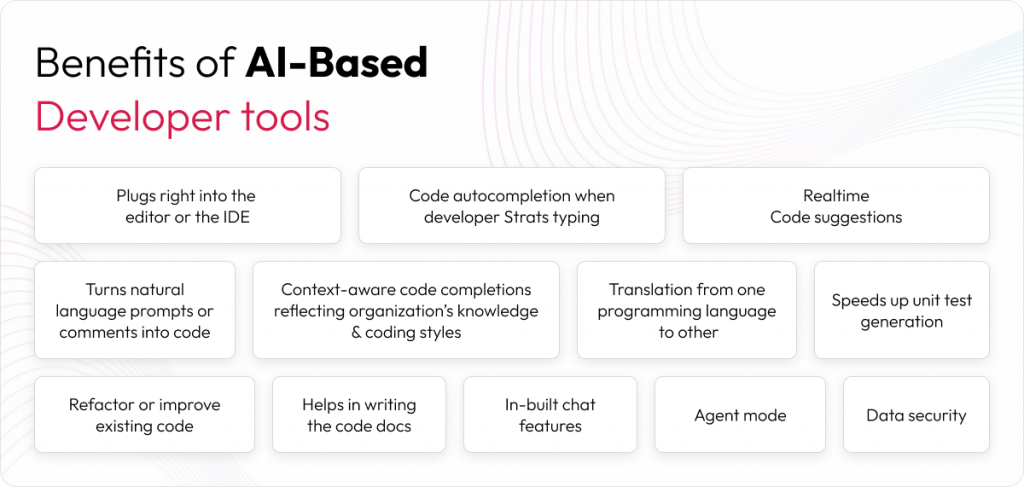AI in software development is reshaping how organizations navigate digital transformations. Yet many engineering teams, in their pursuit of agility and DevOps, find themselves bogged down by complexity, dependencies, and cognitive overload. As productivity stalls and time-to-market risks mount, AI in the software development lifecycle emerges as the critical enabler to drive enterprise value.
It takes sheer resilience to chase evasive bugs and manage the development process. Generative AI is changing this by making coding smarter and more efficient. Let’s explore how AI empowers teams to boost efficiency and gain insights once out of reach.

Impact of AI in software development
What does making an impact in software development really mean? As a developer, it is delivering maximum value to your customers while channeling your energy and innovation toward business goals. An effective environment streamlines the path to deploying high-quality software into production, preventing unnecessary complexities or delays. By removing friction and automating repetitive tasks, AI amplifies these benefits across the Software Development Life Cycle, freeing developers to focus on the value-adding work that truly drives impact. Let’s look at some of the ways AI is reshaping the SDLC.
AI in requirement gathering
Poorly managed requirements often lead to rework and cost overruns. AI-driven tools mitigate these risks by accelerating and refining the requirement-gathering process.
Tools like Jira AI Assistant seamlessly integrate with existing workflows to auto-generate user stories, maintain consistent formats, and break parent-level requirements into granular tasks. Meanwhile, GenAI uses inputs like project goals and personas to draft initial user stories, complete with acceptance criteria, desired outcomes, and dependencies.
AI in design
AI-powered design tools help us analyze and evaluate website and app design quality and usability. These tools help accelerate the design process, explore design options, and optimize UX. Design systems like Figma’s AI features can suggest component variations and styling options. Also, with AI plug-ins we can translate designs directly into code (HTML/CSS/React components) thus reducing the coding time for developers.

AI in coding
AI-powered tools like GitHub Copilot accelerate and enhance coding by offering suggestions, automating boilerplate code, and enforcing consistent standards. They free developers from repetitive work, letting them focus on complex problem-solving and innovation. By analyzing patterns from vast code repositories, these tools detect bugs early, suggest optimizations, and promote best practices. In doing so, they help maintain cleaner, well-documented code, reducing technical debt and boosting overall software quality and productivity.

Check out below podcast to discover insights from our hands-on experience with GenAI tools and how they enhance coding efficiency, optimize code quality, and streamline the development process.
Benefits of AI based coding assistants
Accelerate coding speed: suggests code snippets, functions, and even entire blocks of code based on context, significantly reducing time spent on routine coding tasks.
Reduce cognitive load: handles boilerplate code and repetitive patterns, allowing developers to focus on higher-level problem-solving and architecture.
Improve code quality: can suggest best practices and help maintain consistent code style, potentially reducing bugs and improving maintainability.
Unit test generation: helps create unit tests, potentially increasing test coverage with less manual effort.
Context-aware assistance: understands the codebase context, providing suggestions relevant to the specific project rather than generic solutions.
Multi-language support: works across numerous programming languages and frameworks, making it versatile for different development environments.
Learning tool: helps developers discover new approaches, libraries, and patterns they might not have known about, serving as an educational resource.
Documentation: assists in writing code comments and documentation, encouraging better documentation practices.
Agent mode: in recent development, the code assistant can help you build apps in fully autonomous mode. So, it can break down complex tasks into manageable steps and implement solutions across multiple files or components with least intervention from developer. This is a big step towards achieving 90% to 100% AI Assisted coding in future.
Also check the following articles on Agentic AI:

AI in software testing
AI is transforming software testing with automated test case generation, intelligent bug detection, and enhanced API validations. Tools like ChatGPT and GitHub Copilot speed up test script creation and reduce repetitive tasks, improving overall test coverage and stability. By integrating these solutions into CI/CD pipelines, teams get rapid feedback and maintain higher-quality releases with reduced manual effort.
Unit testing with GitHub Copilot
A standout use case of AI-driven testing is automated unit test generation, where Copilot suggests targeted tests for edge cases, common inputs, and potential failure modes. This proactive approach to generating code scenarios significantly cuts down on development time. As a result, teams often see a 20–25% reduction in overall testing efforts, making AI a strategic investment that boosts reliability, reduces costs, and accelerates time-to-market.
AI in Continuous Integration/Continuous Deployment (CI/CD)
AI-driven solutions in CI/CD pipelines streamline and automate build and deployment processes. By using AI-enhanced Jenkins plug-ins, teams can detect deployment failures or performance regressions in real-time and automatically roll back to a stable build. Integration with AI-based monitoring tools such as New Relic, DataDog or Splunk enables proactive remediation when abnormalities arise.
AI capabilities in SonarQube provide continuous analysis of code, identifying bugs, vulnerabilities, and code smells. Over time, SonarQube learns from developer feedback, refining its rule set and prioritizing the most critical issues and helps getting AI-generated fix suggestions.
Key highlights
- Enterprises are increasingly leveraging AI to accelerate software delivery, enhance product quality, and unlock advanced insights.
- AI in software development streamlines requirement-gathering, design, coding, testing, and deployment, driving agility and reducing overhead.
- Tools like Jira AI Assistant and GitHub Copilot automate repetitive tasks, refine requirements, and accelerate coding, freeing developers to focus on complex problem-solving.
- Automated test generation and intelligent bug detection significantly lower testing efforts, boosting reliability and cutting time-to-market.
- AI-enabled CI/CD pipelines detect anomalies, trigger safe rollbacks, and optimize build steps, delivering faster, stable releases that enhance enterprise value.
Final thoughts
For organizations looking to integrate AI into their development and testing processes, the key is to focus on practical, measurable benefits rather than chasing the latest trends. Thoughtful implementation will ensure AI works as a force multiplier, enabling teams to build high-quality software with speed and precision.
Let’s continue the conversation. What has been your experience with AI in SDLC? Are you seeing measurable improvements in your development cycle? Connect with us to share insights.






